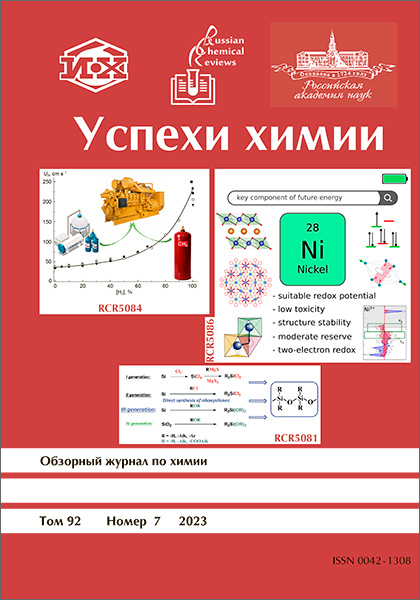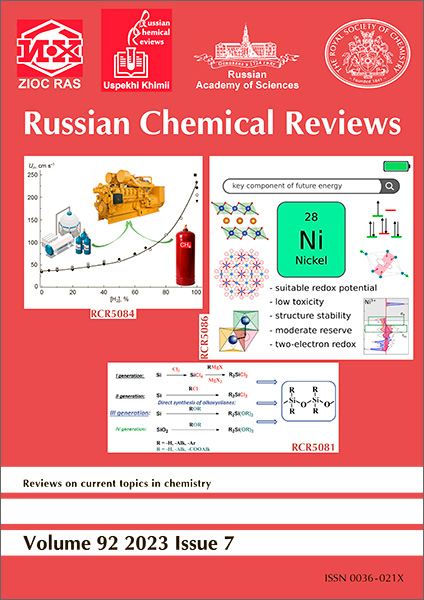|
This article is cited in 3 scientific papers (total in 3 papers)
Controlled ignition of low-carbon gas-engine fuels based on natural gas and hydrogen: process kinetics
V. S. Arutyunovabc, A. V. Arutyunovab, A. A. Belyaeva, K. J. Troshina
a N.N. Semenov Federal Research Center for Chemical Physics, Russian Academy of Science (FRCCP RAS), Moscow, Russian Federation
b Lomonosov Moscow State University, Moscow, Russian Federation
c Federal Research Center of Problems of Chemical Physics and Medicinal Chemistry RAS, Chernogolovka, Moscow region, Russian Federation

Abstract:
The potential wide use of environmentally friendly low-carbon gas fuel based on natural gas, hydrogen, their mixtures, and syngas in power generation and transport requires detailed information about the kinetics of ignition of these gases at temperatures below 1000 K, at which fuel ignition occurs in internal combustion
engines (ICEs) and gas turbines. The same temperature range is also important for monitoring the storage and transportation conditions of these fuels. Although there are quite a few studies addressing the ignition of classical gas fuels such as methane or hydrogen, there is an obvious lack of works dealing with real
natural gases and gas mixtures. Furthermore, even for methane and hydrogen, data on the ignition at high temperatures (T > 1000 K), which have been mainly gained by the shock-wave method for highly diluted mixtures, are at variance with the kinetic estimations for real conditions of operating with them or their use
in ICEs. Considering the ignition characteristics at T < 1000 K is also important for syngas, the largest-scale base product of gas chemistry and the main industrial source of hydrogen. The pronounced discrepancies between the extrapolation of the results obtained for high-temperature ignition to lower temperatures and the results of kinetic modelling of these processes make it necessary to analyze their causes. This review addresses new experimental results on the ignition of methane–alkane and methane–hydrogen
mixtures (real gas fuels) and kinetic modelling of these processes, which reveal significant changes in the ignition behaviour at T < 1000 K. These changes in the ignition process upon the variation of the temperature, pressure, and composition of the mixture are related to significant changes in the methane and hydrogen oxidation mechanisms in this temperature range. They are mainly caused by changes in the kinetics and, hence, the role of peroxide compounds and radicals in methane and hydrogen oxidation following temperature and pressure variation. The established features bring about the question of the adequacy of the existing criteria for assessing the knock resistance of gas engine fuels, primarily those containing hydrogen, when they are used in ICEs, and for assessing their explosiveness and measures taken for their safe handling. The review considers the possible methods for improving the knock characteristics of natural and associated gases to meet the requirements of power equipment manufacturers.
The bibliography includes 128 references.
Keywords:
natural gas, methane, hydrogen, syngas, ignition, oxidation, kinetic modeling.
Received: 11.04.2023
Citation:
V. S. Arutyunov, A. V. Arutyunov, A. A. Belyaev, K. J. Troshin, “Controlled ignition of low-carbon gas-engine fuels based on natural gas and hydrogen: process kinetics”, Usp. Khim., 92:7 (2023), RCR5084; Russian Chem. Reviews, 92:7 (2023), RCR5084
Linking options:
https://www.mathnet.ru/eng/rcr4430https://doi.org/10.59761/RCR5084
|


| Statistics & downloads: |
| Abstract page: | 54 | | References: | 2 |
|



 Contact us:
Contact us: Terms of Use
Terms of Use
 Registration to the website
Registration to the website Logotypes
Logotypes